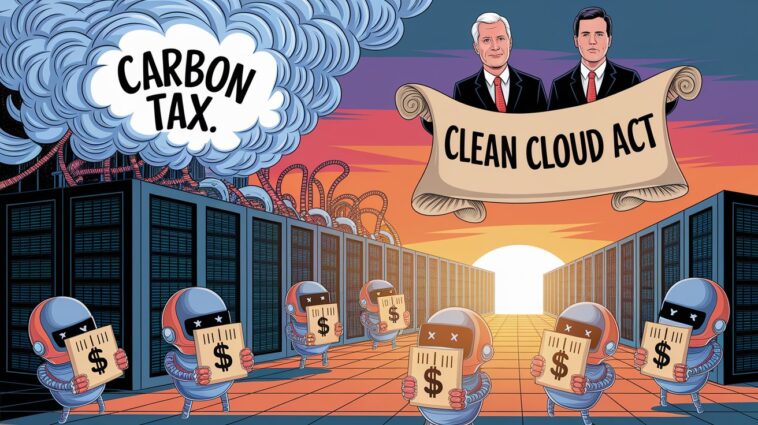Clean Cloud Act Sets Sights on Emissions
A new draft bill in the U.S. Senate could spell trouble for crypto miners and AI data centers. The Clean Cloud Act, proposed by Senators Sheldon Whitehouse and John Fetterman, would slap carbon emissions fees on facilities consuming over 100 KW of computing power — a category that includes blockchain networks and AI infrastructure.
The bill hasn’t passed yet, but it’s already sparking backlash from the crypto industry. The goal? Cut carbon pollution and protect households from rising energy costs.
How the Fees Would Work
Under the proposed law, the Environmental Protection Agency (EPA) would establish emissions benchmarks based on regional electricity grids. Facilities exceeding those limits would pay $20 per ton of CO2 emitted — with the fee rising yearly by inflation plus $10.
With crypto miners and data centers already gobbling up massive energy supplies, the law could put serious pressure on operations across the U.S.
Miners Dive Into AI — Just in Time for Regulation?
Ironically, many Bitcoin miners are already pivoting toward AI. Companies like Galaxy, CoreScientific, and Terawulf have been repurposing their mining infrastructure to support high-performance computing for AI models.
This diversification helped stabilize revenue after crypto prices fell and mining rewards dropped in early 2025. But if the Clean Cloud Act passes, it could turn their AI side hustle into a regulatory nightmare.
Trump’s Crypto-AI Push Collides With New Bill
The bill may also clash with President Trump’s recent push to make the U.S. the “world capital of crypto and AI.” His administration previously repealed Biden-era AI safety rules, favoring rapid tech expansion over regulation.
Crypto execs warn this latest proposal could disrupt node operators, validators, and blockchain infrastructure in the U.S. at a critical time.




